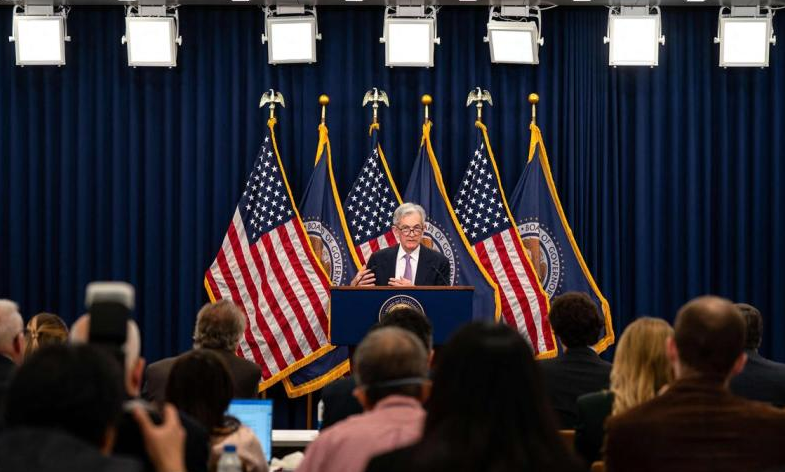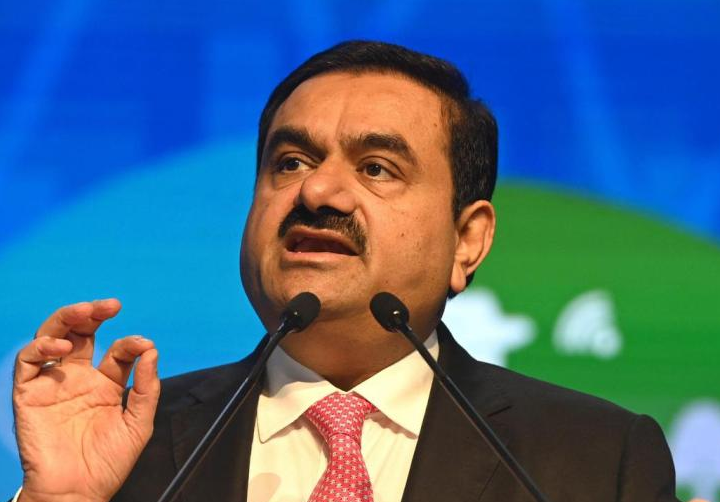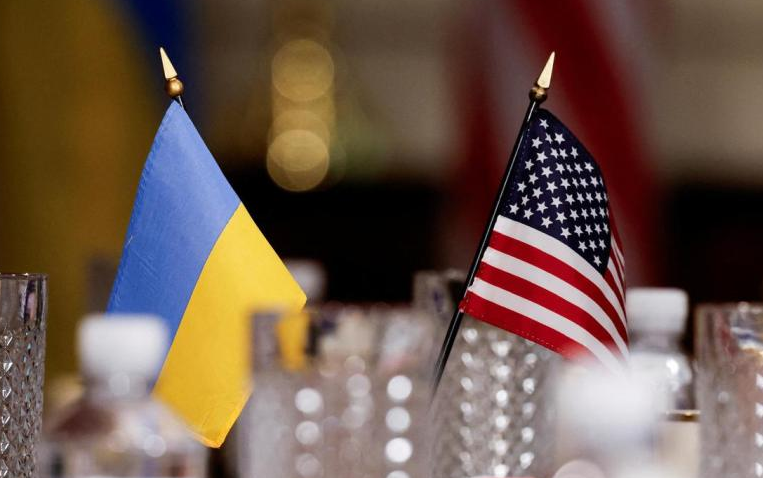
The return of Trump may be a wake-up call for the EU, prompting further integration and the establishment of an independent defense alliance to avoid being sidelined on the new international stage. However, the extreme right factions in Europe, vying for power among themselves, have already sowed the seeds of division within the EU. They hope to ride on Trump’s coattails to dismantle the EU. Nevertheless, a Europe without the EU would render individual countries as mere satellites of Trump, rather than equal allies.
Trump’s overwhelming victory, with over half of voters following his American dream, could be a nightmare for Europe. Compared to the shock of Trump defeating Hillary in 2016, Europeans are more psychologically prepared this time. They understand that regardless of the outcome, Biden, who entered politics during the Cold War, is the last Atlanticist U.S. president. The world’s center of gravity has shifted towards the Pacific, and while Biden may slow down this process, Trump’s strong comeback still leaves Europeans uneasy.
Trump’s actions are unpredictable, but after four years outside the White House and numerous legal battles, his unfiltered and aggressive nature remains unchanged, if not intensified. Now, without seasoned establishment officials to restrain him, he will relentlessly pursue his vision of the American dream, dismantling what he deems unfair international rules. If Trump delivers on his “Make America Great Again” (MAGA) campaign promises by imposing high tariffs, ending wars, massively deporting illegal immigrants, and purging the deep state, he will reshape the world order and challenge democratic norms.
In Trump’s eyes, as a self-proclaimed dealmaker, allies and enemies are indistinguishable. Despite being America’s most important ally on the international stage since World War II, Europe is seen as a trading partner by Trump. “Tariffs” are Trump’s favorite term, not only used to counter America’s biggest competitor, China, but also against European countries. The ripple effects of the U.S.-China economic confrontation will also impact Europe. If the U.S. and China reach a trade agreement, cheap Chinese products may flood into Europe. Unless the EU adopts protectionist measures, the global trade landscape will undergo significant restructuring. EU officials are already devising retaliatory tariff plans against the U.S. and are considering methods previously used to appease Trump, such as promising to purchase more American liquefied natural gas and agricultural products to balance trade surpluses. While these trades are based on market mechanisms and are necessary for the EU, they may satisfy Trump’s vanity in achieving deals.
The security and surrounding conflicts will undoubtedly be challenging for Europe. After Trump leaves office in 2021, the global situation drastically changes. Following Putin’s invasion of Ukraine in February 2022 and Hamas’s attack on Israel in October 2023, the Middle East conflict escalates, and after Democratic Speaker Pelosi’s visit to Taiwan in August 2022, tensions in the Taiwan Strait intensify. Trump has repeatedly expressed his desire to end the war in Ukraine, believing it is in the best interest of the United States. His deputy, Pence, candidly admits that the U.S. lacks the ability to provide Ukraine with enough weapons to win the war and that these weapons are needed elsewhere.
The prolonged war has devastated Ukraine’s economy, leading to population loss. With diminishing support from the U.S.-led coalition, it is impossible for Ukraine to reclaim the one-fifth of territory occupied by Russia. Calls for a ceasefire at the right time are growing louder. The question remains: under what conditions will Trump satisfy Putin and what security guarantees will he provide to Ukraine? After all, the assurances made by the U.S. and Britain when convincing Ukraine to give up nuclear weapons in the 1990s appear to be mere empty promises.
The EU, like Ukraine, is concerned that the U.S. may bypass them and reach agreements with Russia. Trump has also suggested that Putin can do as he pleases with NATO countries that do not meet the 2% defense spending requirement, almost reducing the most important military alliance to a paper tiger. A law passed by the U.S. at the end of last year states that withdrawing from NATO requires the consent of two-thirds of senators, making it difficult for Trump to cross this high threshold. However, he can reduce investment and hollow out the organization. The Polish Prime Minister Tusk, who empathizes with Ukraine’s plight, stated, “The era of outsourcing defense has ended.”
Concerns about Trump’s return are leading to a potential farewell from the United States to Europe. The European Union is seeking to strengthen ties with the UK, which left the EU in 2016, and with France to provide nuclear deterrence. Despite Trump’s often erratic and incoherent statements, Elbridge Colby, who once served as his Deputy Assistant Secretary of Defense, has a theory regarding the division of labor between Europe and the U.S. during the latter’s pivot to the Indo-Pacific region. Colby believes that the U.S.’s economic size is no longer sufficient to sustain global hegemony, necessitating the maintenance of power equilibrium. As the U.S. shifts its military focus to the Indo-Pacific, leaving behind nuclear deterrence, space, and military network equipment in Europe, the EU must assume more security responsibilities. Currently, the combined military forces of France, Germany, the UK, Italy, and Poland surpass those of Russia, but there is a lack of collective mobilization.
At the same time, the U.S. has relaxed restrictions on arms exports, supporting the EU’s geopolitical strategies in the Caucasus and the Mediterranean, while encouraging the development of the EU’s defense industry. Colby stated, “While it’s a good thing for Poland to increase military spending, relying on the U.S. for weapons could detract from U.S. tasks in Asia.”
Extreme right-wing factions in Europe are vying for power and hitching a ride on Trump’s return. The crisis may serve as a turning point, similar to how the Eurozone crisis led to banking system integration and the COVID-19 pandemic facilitated collective vaccine procurement. Trump’s strong comeback could be a wake-up call for the EU, prompting further economic integration, technological cooperation, and the establishment of an independent defense alliance to prevent being sidelined on the new international stage. Mark Leonard, Director of the European Council on Foreign Relations (ECFR), warns against panic and ostrich mentality among EU member states, advising them not to hastily engage with Trump or underestimate his campaign rhetoric.
While French President Macron congratulated Trump, he coordinated with German Chancellor Scholz and emphasized the EU’s role. However, both leaders are facing challenges, with Scholz’s traffic light coalition government in Germany being on the brink of collapse the day after Trump’s victory. Pro-Russian Hungarian Prime Minister Orban warmly welcomed Trump’s return, while the rising star of the extreme right in Italy, Prime Minister Meloni, aims to replace the Franco-German leadership within the EU and is seeking to build rapport with Trump. Meloni has a close personal relationship with tech mogul Musk, who played a significant role in her election campaign. Salvini, the chairman of the League party who governs alongside Meloni, boasts unwavering support for Trump, unlike Meloni, whose stance is more ambiguous.
Although Trump has not yet taken office or made any moves against the EU, the infighting among Europe’s extreme right factions has already planted the seeds of division within the EU. They hope to ride on Trump’s coattails to dismantle the EU. However, a Europe without the EU would render individual countries as mere satellites of Trump, rather than equal allies.









